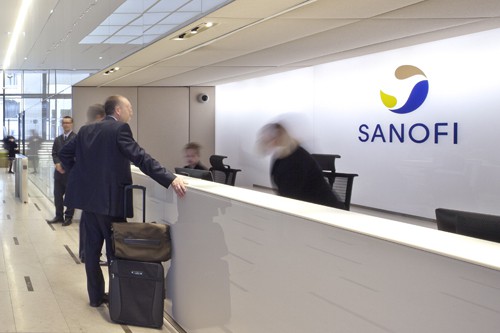
Lemtrada has become the second drug from Sanofi to be approved to treat multiple sclerosis (MS) in the EU in the space of a few weeks.
The approval for Lemtrada (alemtuzumab) covers the drug’s use as a treatment for relapsing remitting multiple sclerosis (RRMS) – a form of MS involving periods of flare-ups and recovery – to be given as an intravenous infusion in two annual treatment courses.
It follows the EC approval at the end of August for Sanofi’s Aubagio (teriflunomide), which is also approved in RRMS but comes in a simpler to administer oral tablet form to be taken once a day.
Both drugs were acquired by Sanofi as part of its takeover of the US-based biotech Genzyme in 2011, providing the company with a strong, MS portfolio with which to compete against new MS drugs in the shape of Novartis’ Gilenya (fingolimod) and Biogen Idec’s Tecfidera (dimethyl fumarate).
“This is a hopeful time for people with MS,” said John Golding, president of the European Multiple Sclerosis Platform, a Europe-wide organisation representing national MS societies.
“These approvals demonstrate the great progress being made towards introducing more differentiated treatment options that address important unmet needs.”
Sanofi says it plans to launch both Lemtrada and Aubagio in the EU “soon” allowing the company to start to catch up on Novartis, which won approval in 2011 for Gilenya as the first oral treatment available for MS. The drug achieved non-US revenues of $391m for the first half of 2013.
Biogen Idec has fallen a little behind in Europe, commenting in May this year that the launch of Tecfidera in the region will be delayed until the second half of 2013 to resolve patent and regulatory data protection issues.
Aubagio, Gilenya and Tecfidera are all approved by the US Food and Drug Administration (FDA).
The RRMS approval for Lemtrada in the EU is its first anywhere in the world, and gives a new lease of life to the drug’s active ingredient alemtuzumab, which was previously sold as a treatment for chronic lymphocytic leukaemia under the Campath brand name.
However, Sanofi decided to pull Campath from market in the EU and the US in August, due in part to the prospect of the drug’s use as an MS treatment.
The dose of alemtuzumab used in Campath is much higher than for Lemtrada, meaning that if the cost of the treatment were kept proportional, Sanofi would have to sell its MS product well below its competitors in the therapy area, while there would also be the potential for off-label prescribing of the cheaper Campath in MS.




